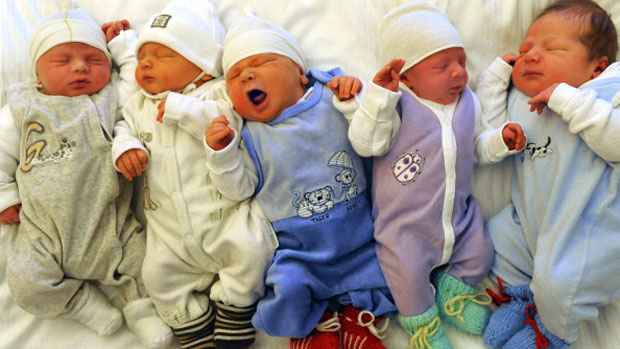Why mothers are being separated from their babies in the UK
Doctors blast ‘disgraceful’ lack of specialist care for women with postnatal depression

A free daily email with the biggest news stories of the day – and the best features from TheWeek.com
You are now subscribed
Your newsletter sign-up was successful
Mothers seeking help for post-natal depression are being separated from their babies because of a lack of beds in NHS treatment units, doctors have warned.
Perinatal mental health problems affect up to 20% of women during pregnancy or in the first year after giving birth, and cover a wide range of conditions. “If left untreated, it can have significant and long-lasting effects on the woman and her family,” says the NHS website.
Failings by mental health services mean some babies are being left at risk of being harmed by their mothers, or seperated from them, according to medics.
The Week
Escape your echo chamber. Get the facts behind the news, plus analysis from multiple perspectives.

Sign up for The Week's Free Newsletters
From our morning news briefing to a weekly Good News Newsletter, get the best of The Week delivered directly to your inbox.
From our morning news briefing to a weekly Good News Newsletter, get the best of The Week delivered directly to your inbox.
The annual meeting of the British Medical Assocation (BMA) heard that in some cases, babies are being put in care, “when they should have been cared for in wards while their struggling mothers receives help”, reports The Daily Telegraph.
With just 2.4 NHS beds per 1,000 people in England, the health service needs a total of 74,000 more beds to catch up with the EU average of 3.7 per 1,000 people, says the newspaper.
“The reason that we struggle to find beds is that there are 131 perinatal beds in the entirety of the UK. There are no inpatient perinatal beds in Northern Ireland nor in Wales. This is a disgrace,” Dr Kelly Cruickshank, a liaison psychiatrist from Salford Royal Hospital, told delegates at the BMA meeting, in Brighton.
Dr Cruickshank said it was “vitally important” to keep mothers and babies together in order to encourage bonding, and that separation has been proven to worsen mental health for both the mother and the child.
A free daily email with the biggest news stories of the day – and the best features from TheWeek.com
“It is going to take longer to recover if you have these horrible feelings of guilt about not being able to properly care for your baby,” said Cruickshank.
-
 How the FCC’s ‘equal time’ rule works
How the FCC’s ‘equal time’ rule worksIn the Spotlight The law is at the heart of the Colbert-CBS conflict
-
 What is the endgame in the DHS shutdown?
What is the endgame in the DHS shutdown?Today’s Big Question Democrats want to rein in ICE’s immigration crackdown
-
 ‘Poor time management isn’t just an inconvenience’
‘Poor time management isn’t just an inconvenience’Instant Opinion Opinion, comment and editorials of the day